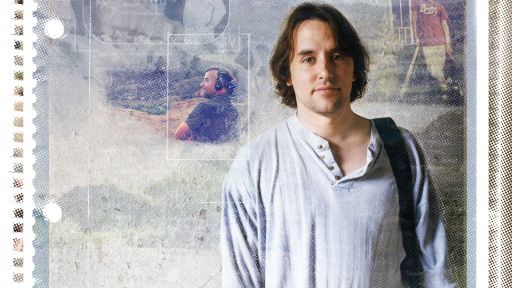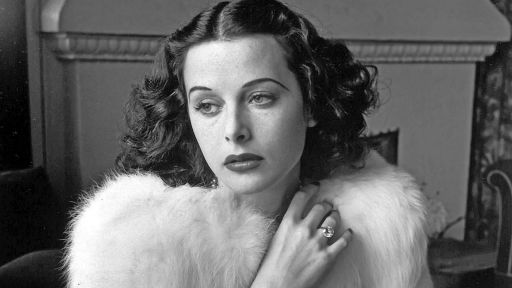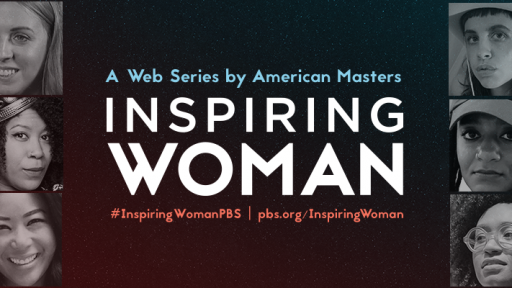Actor Treat Williams describes working with director Sidney Lumet on “Prince of the City.” Williams and documentary filmmaker Nancy Buirski have a conversation about Lumet’s unique approach to working with actors and his eclectic range of projects. Williams shows his affection for Lumet’s embrace of theatrical performance and says, “sometimes you gotta be bigger than life.”
Treat Williams on the acting process with Sidney Lumet
Actor Treat Williams describes working with director Sidney Lumet on “Prince of the City.” Williams and documentary filmmaker Nancy Buirski have a conversation about Lumet’s unique approach to working with actors and his eclectic range of projects. Williams shows his affection for Lumet’s embrace of theatrical performance and says, “sometimes you gotta be bigger than life.”
Treat Williams on the acting process with Sidney Lumet was originally produced as a companion special to American Masters: By Sidney Lumet.
American Masters: By Sidney Lumet is a production of Augusta Films and THIRTEEN PRODUCTIONS LLC’s American Masters in association with RatPac Documentary Films, Matador, and Anker Productions, Inc. Nancy Buirski is director and producer. Christopher Donnelly is producer. Anthony Ripoli is editor. Michael Kantor, James Packer, Brett Ratner, Bobby Kondrat, and Jack Turner are executive producers. Scott Berrie, Joshua Green, Thane Rosenbaum, and Robyn Yigit Smith are producers.
Funding for American Masters: By Sidney Lumet is provided by Steven Spielberg’s Righteous Persons Foundation and the Keren Keshet Rainbow Foundation.
About American Masters
Now in its 37th season on PBS, American Masters illuminates the lives and creative journeys of those who have left an indelible impression on our cultural landscape—through compelling, unvarnished stories. Setting the standard for documentary film profiles, the series has earned widespread critical acclaim: 28 Emmy Awards—including 10 for Outstanding Non-Fiction Series and five for Outstanding Non-Fiction Special—two News & Documentary Emmys, 14 Peabodys, three Grammys, two Producers Guild Awards, an Oscar, and many other honors. To further explore the lives and works of more than 250 masters past and present, the American Masters website offers full episodes, film outtakes, filmmaker interviews, the podcast American Masters: Creative Spark, educational resources, digital original series and more. The series is a production of The WNET Group.
American Masters is available for streaming concurrent with broadcast on all station-branded PBS platforms, including PBS.org and the PBS App, available on iOS, Android, Roku streaming devices, Apple TV, Android TV, Amazon Fire TV, Samsung Smart TV, Chromecast and VIZIO. PBS station members can view many series, documentaries and specials via PBS Passport. For more information about PBS Passport, visit the PBS Passport FAQ website.
About The WNET Group
The WNET Group creates inspiring media content and meaningful experiences for diverse audiences nationwide. It is the community-supported home of New York’s THIRTEEN – America’s flagship PBS station – WLIW21, THIRTEEN PBSKids, WLIW World and Create; NJ PBS, New Jersey’s statewide public television network; Long Island’s only NPR station WLIW-FM; ALL ARTS, the arts and culture media provider; newsroom NJ Spotlight News; and FAST channel PBS Nature. Through these channels and streaming platforms, The WNET Group brings arts, culture, education, news, documentary, entertainment and DIY programming to more than five million viewers each month. The WNET Group’s award-winning productions include signature PBS series Nature, Great Performances, American Masters and Amanpour and Company and trusted local news programs MetroFocus and NJ Spotlight News with Briana Vannozzi. Inspiring curiosity and nurturing dreams, The WNET Group’s award-winning Kids’ Media and Education team produces the PBS KIDS series Cyberchase, interactive Mission US history games, and resources for families, teachers and caregivers. A leading nonprofit public media producer for more than 60 years, The WNET Group presents and distributes content that fosters lifelong learning, including multiplatform initiatives addressing poverty, jobs, economic opportunity, social justice, understanding and the environment. Through Passport, station members can stream new and archival programming anytime, anywhere. The WNET Group represents the best in public media. Join us.
Funding for American Masters: By Sidney Lumet is provided by Steven Spielberg’s Righteous Persons Foundation and the Keren Keshet Rainbow Foundation.
Original production funding for American Masters provided by the Corporation for Public Broadcasting, AARP, The Cheryl and Philip Milstein family, Judith and Burton Resnick, Seton J. Melvin, The Blanche and Irving Laurie foundation, Vital Projects Fund, Lillian Goldman Programming Endowment, The Ambrose Monell Foundation, The Philip and Janice Levin Foundation, Ellen and James S. Marcus, The André and Elizabeth Kertész Foundation, Sue and Edgar Wachenheim III, The Rosalind P. Walter Foundation, Koo and Patricia Yuen, Thea Petschek Iervolino Foundation, The Marc Haas Foundation and public television viewers.
- I'm very lucky to work with great directors, you know?
Woody Allen and Steven Spielberg, and John Sturges, a great director, really fine filmmakers.
But I think I had the most in common with Sidney because we both actors.
- I'm sitting here with Treat Williams who was the star of, "Prince of the City," by Sidney Lumet.
Treat, thank you so much for joining us.
- Thank you.
It's an honor.
- Why don't we begin by talking about how you learned about, "Prince of the City."
I know you auditioned at great length and many times for that role, so tell us about that process.
- Well, I had auditioned for Sidney, interestingly, for, "Dog Day Afternoon," a couple years earlier.
So I think he was at least aware of me as one of the young actors in New York.
And then Miloa Forman cast me in, "Hair."
I was doing the musical, "Grease," on Broadway.
And I think Sidney saw something in that performance that, how he could apply a sixties hippie to an Italian cop coming up in the seventies.
I'm not sure, but I know he saw something in it.
And we started a very, very intense process.
His greatest concern was at my age, at that age, that I had the gravitas to play the latter parts of the film.
And that's what we worked on most.
- It's a kind of American tragedy.
It's a very dark film.
- It is, it is.
- And I went to some very dark places.
It was difficult to recover from.
He brings down the people he loved most, his partners.
- Yeah.
- There were suicides.
It was a terrible thing to see happen.
- Were you aware that Sidney was ambivalent about this character, your character, Danny Ciello?
- No, I wasn't thinking about Sidney's ambivalence.
(both laughing) I was worried about playing the biggest role I'd ever been given.
So what Sidney felt about it was less important to me than him helping me... - And tell us how he helped you.
How did he help you - Well, I gotta say, prepare for this?
this is for any film students who see this.
He rehearsed the film like a play.
First of all, he took me to all the locations and showed me what they actually looked like.
And we always used, almost always, real rooms in real places.
I think there were 160 speaking roles in the film.
And we hired a great hall on Second Avenue.
And he taped out every single set, and we blocked out every single scene.
We were rehearsing a play, a screenplay, but a play.
Sidney came from live television and that's how he worked.
And he did this wonderful thing.
We would, you know, we would get, once we got our lines down, so we were all off book by the second week of being in there.
And when he saw a scene got to the emotional level that he wanted it to be, he would go, "That's a print," in his little voice.
And we would all know that Sidney was saying to us in a very simple way, "There's a lot of emotional rollercoaster going here.
That's where I need this scene to get to in this particular place in the movie."
That is extraordinarily helpful.
It's also great to learn to trust other actors.
You get comfortable with one another.
I don't think I've rehearsed as many days in the last 80 movies since, as I did the 30, 35 days I rehearsed on Prince.
- And in that period, he often said that you worked very intensively.
Can you talk a little bit about that process?
- Well, he was an actor, and sometimes working with him was almost like working with another actor.
There was a scene where I was really a little bit lost 'cause I had not seen this character.
And I had to do this angry Italian guy yelling at at somebody.
And I was imitating him in sort of a wise guy way.
And Sidney said, "No, no.
It's gotta be really heightened, you know?"
And he said, "The guy's gotta be like, flipped out, "you son of a [Censored]!"
You gotta be doing that.
And I said, "Oh, I can go there.
Okay."
So what was great with Sidney was if he demonstrated, it wasn't a bad director demonstrating bad acting, which is just, it's death to an actor to have somebody give you a line reading.
- How does this fit into the kind of pantheon of films that you've made?
How does it, does it stand out in a very special way?
Oh yeah, it's... - I would say, I'd put them equal.
The number ones are, "Hair," and, "Prince of the City."
And then they start to in descending order.
The thing I love about Sidney's directing is, his films are completely different.
You'd never think the guy who directed, "Prince of the City," could direct, "Murder on the Orient Express."
You know, they're just...
So he's one of those few directors that would completely just immerse himself in the milieu and in the environment of that particular movie and that kind of acting.
Completely different kind of acting in that film too, you know?
- Well, he loved work.
He loved making movies.
And if he found a good script, he was gonna make it.
It didn't have to - Yeah.
satisfy an agenda.
- Yeah, and he wasn't afraid of being theatrical.
What the hell's wrong with being theatrical?
No wonder he got thrown outta the Actor's Studio.
You know, sometimes you gotta be bigger than life.
And a lot of his films, you know...
But he was also not afraid to fail.
He went out and made, "The Wiz."
He'd never done a musical so he, you know, he... That's one of the things I really admire about him as an artist.
He said, "Oh hell, I'll just go do it.
What?
You know...
They're not gonna shoot me.
I'll go make this movie and see how it goes."
But look what's risen to the top.
- The more we think about him, the more we realize how extraordinary he was.
- I think though, I think we all know we were working with one of the greats and he made it comfortable for us.
Come on a set, give you a kiss, "Let's go to work."
You know, he was just always a ball of enthusiasm.
And if I may say on camera, he was a 'no [Censored]' guy, which I loved about him.
He was great, great.
Sidney wasn't afraid to give you his love.
He held nothing back.
You felt that he cared about you and your talent.
He made you feel safe.
I always felt very safe acting in front of Sydney.
And he knew how to say, if something wasn't working, "That's great.
Let's, why don't we try this?"
He was just really, I'd have to say, the greatest American film director I worked with, in terms of all encompassing, all aspects of film.
And I miss him, I miss him.
Like to say that I miss working with him and, but I got to.
You May Also Like






